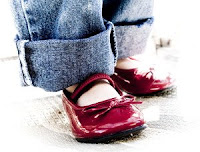Completa las siguientes oraciones condicionales del primer tipo colocando la forma correcta de los verbos que se encuentran entre paréntesis:
Ejercicios: Grados del Adjetivo (3)
Aquí tienes más frases para completar con su correspondiente grado del adjetivo:
Ejercicios: Oraciones Condicionales – Primer Tipo (3)
En esta oportunidad te ofrecemos un nuevo ejercicio para que practiques la formación de oraciones condicionales de primer tipo. Debes completar los espacios con la forma correcta del verbo que se encuentra entre paréntesis:
Ejercicios: Some or Any? (2)
Continúa ejercitando el uso de SOME y ANY completando las oraciones que te ofrecemos a continuación con su forma correcta:
Pasado Participio de los Verbos Irregulares – 3º Parte
PRESENTE SIMPLE |
||
Ejercicios: Pasado Perfecto (Past Perfect Tense) (3)
Sigue ejercitando el Pasado Perfecto colocando en las siguientes oraciones la forma correcta del verbo que se encuentra entre paréntesis. Es importante que luego las reescribas en interrogativo y negativo:
Pasado Participio de los Verbos Regulares – 4º Parte
Hoy te ofrecemos más verbos regulares con su correspondiente pasado participio. Te sugerimos que para incorporarlos en tu vocabulario, tomes algunos de ellos y escribas oraciones o textos cortos donde utilices «tiempos perfectos». Si necesitas algunos más puedes mirar las siguientes entradas:
- Pasado Participio de los Verbos Regulares – 1º Parte
- Pasado Participio de los Verbos Regulares – 2º Parte
- Pasado Participio de los Verbos Regulares – 3º Parte
PRESENTE SIMPLE |
||
Pasado Perfecto (Past Perfect Tense)
El Pasado Perfecto en el idioma inglés es un tiempo verbal que se utiliza para referirnos a una acción que tuvo lugar en un momento anterior a otra acción, aunque ambas hayan sucedido en el pasado estableciendo un orden entre ellas, por ejemplo:
La película había terminado cuando ella llegó al cine.
(Primera acción: la película había terminado
Segunda acción: ella llegó al cine)Sarah had prepared dinner when her husband got home.
Sarah había preparado la cena cuando su esposo llegó a casa.
(Primera acción: Sarah había preparado la cena
Segunda acción: su esposo llegó a casa)
Para poder construir la forma afirmativa del Pasado Perfecto debemos utilizar como auxiliar el verbo TO HAVE en Pasado Simple y acompañado por el verbo principal en su Pasado Participio (ya sean verbos regulares o verbos irregulares):
| I had bought a new car. | Yo había comprado un nuevo auto. |
| You had cleaned the house. | Tú habías limpiado la casa. |
| He had brought the gifts. | Él había traído los regalos. |
| She had lost the credit card. | Ella había perdido la tarjeta de crédito. |
Para formar una interrogación deberemos colocar el auxiliar al comienzo de la oración, luego el sujeto y posteriormente el verbo principal también en Pasado Participio:
| Had I bought a new car? | Había comprado yo un nuevo auto? |
| Had you cleaned the house? | Habías limpiado tú la casa? |
| Had he brought the gifts? | Había traído él los regalos? |
| Had she lost the credit card? | Había perdido ella la tarjeta de crédito? |
Por su parte, la forma negativa se construye poniendo la negación NOT entre el auxiliar y el verbo principal, por ejemplo:
| I had not bought a new dress. | Yo no había comprado un nuevo vestido. |
| You had not cleaned the house. | Tú no habías limpiado la casa. |
| He had not brought the gifts. | Él no había traído los regalos. |
| She had not lost the credit card. | Ella no había perdido la tarjeta de crédito. |
También puede utilizarse la forma contraída de la negación colocando HADN’T en vez de HAD NOT.
Pasado Participio de los Verbos Regulares – 3º Parte
La siguiente lista de verbos te será de mucha utilidad a la hora de practicar el Presente Perfecto y el Pasado Perfecto. También te proponemos que mires estas entradas para aumentar tu vocabulario:
PRESENTE SIMPLE |
||
Pasado Participio de los Verbos Regulares – 2º Parte
Aquí tienes una nueva selección del Pasado Participio de los verbos regulares para que puedas realizar ejercicios sobre el Presente Perfecto. Si necesitas algunos más puedes consultar aquí:
PRESENTE SIMPLE |
||










